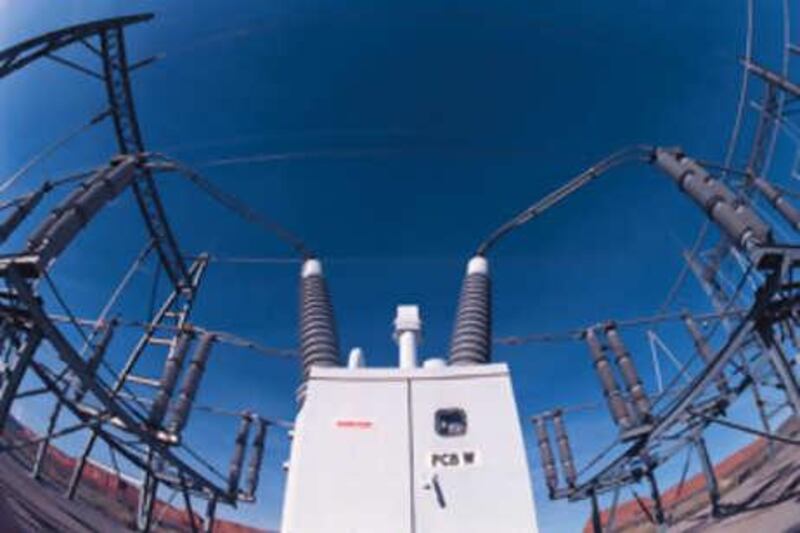Crippling electricity shortages in Ras al Khaimah are to be tackled with a new generation of power stations and overseas fuel deals, the government announced. In a report commissioned by the RAK Government, Sheikh Saud bin Saqr, the Crown Prince and Deputy Ruler, said a gas-fired station would be built to end shortages and ensure future industrial development. Others stations will be built to service industries, such as the emirate's cement operations. Due to be operational by 2011, its fuel demands would be met by supplies from Umm al Qaiwain, Oman and nations in East Africa.
The Report: Ras Al Khaimah 2008 highlights power shortages as the major obstacle to RAK as an emerging centre for investment and innovation. "Power generation, or the lack of it, is now the single biggest bottleneck preventing future economic expansion in RAK," says the report from the Oxford Business Group, the London-based publishing, research and consultancy organisation. Speaking at the release of the report on Wednesday, Sheikh Saud said it was his ambition to "repackage Ras al Khaimah".
"Business reports like this one are very valuable for any estate," he said. "In RAK we believe in constant improvement and continuous evaluation. Our development strategy in RAK is based on unlocking our potential in every sphere... We have to repackage RAK so that it becomes a destination, a place of choice." RAK has long relied on Abu Dhabi to make up its shortfall of electricity. However, with Abu Dhabi now facing its own problems, the Government has acted to be master of its own future.
Shortages of electricity have left dozens of recently finished buildings in the emirate empty, with entire streets in RAK city lacking power. Large commercial projects, such as Safeer Mall, could not open. The report said RAK had become a victim of its own success, with rapid industrial and population growth exacerbating the shortages. "RAK plans to attract investment worth around US$15 billion [Dh55.1bn] by 2009 in order to develop its tourism and industrial sectors.
"Right now it seems that meeting the energy needs of potential investors will be perhaps the biggest challenge for the government if current growth levels are to be maintained." RAK Energy will build a 200 megawatt gas-powered station in the north, near RAK's cluster of cement plants, the report said. In addition, "We are putting an 80MW power plant in the Al Ghail area. ... We are also currently working on the installation of another plant in Al Hamra."
In the report, Sheikh Saud set out in detail how the emirate's would get the gas to drive the new power stations. RAK has two energy companies, RAK Petroleum and RakGas. RakGas has signed a deal with Umm Al Qaiwain to tap a gas field there and import gas to RAK. Other notable assets include a gas field in the Musandam Peninsula in Oman. Both of these supplies will be delivered in 2008, he said. RakGas, he added, "has also taken concessions in Africa." The report emphasised the importance of the power plans: the emirate's oil reserves account for less than 0.1 per cent of the UAE's total and its single gas field is "no longer commercially viable". Current oil production is 100 barrels a day, down from 13,000 in 1986. The gas shortage stalled growth in industry, the report said. Cement factories, for example, had been forced to turn to coal or diesel fuel for power. Nevertheless, the report praised the government's development strategy, which had allowed the emirate to avoid many of the problems experienced elsewhere while still attracting investment. "Ras Al Khaimah is approximately 10 to 15 years behind Dubai," said Frank Khoie, chief executive and chairman of Khoie Group. "The opportunities are always where things are just starting. Dubai is too crowded, too competitive. RAK is already extremely attractive to investors. For investors who are looking for a return on investment it's time to invest now." Jason Moore, managing director of Mayfair International Real Estate, said the company had been attracted to RAK by its "strong leadership, strong industry and strong tourism. And they're growing." Sheikh Saud recalled RAK's history as a trading port and spoke of its future as a gateway for communications, transport, innovation and education. He praised developments such as Mina al Arab, Al Hamra Village, the Marjan Island, Dana Island and Saraya Island and, singling out the examples of Gateway City and the experimental Swiss-designed "solar island" project - which could generate sufficient electricity to power 200,000 homes - emphasised the importance of RAK developing in a sustainable and environmentally friendly manner. He said his ambition is to make RAK "the most important and active port in the whole Gulf", and that would be achieved through investment in the RAK and Jazeera ports. Peter Grimsdich, editorial director of the Oxford Business Group, spoke of RAK's potential, saying that GDP rose 50 per cent from 2001 to 2005. It was, he said, important "that not only we know about these things but that the rest of the world does too; it's not for nothing that the Financial Times voted RAK as the most cost-effective place in the entire Middle East to do business". He told his audience: "You did not get this by accident. You got it through your graft, your hard work, your determination, your planning, your thinking. "You know, you're not the world's biggest place but nevertheless you have high ideals, you have well-planned thoughts and you know that you can go to the outside world and you have something quite specific to offer." azacharias@thenational.ae





